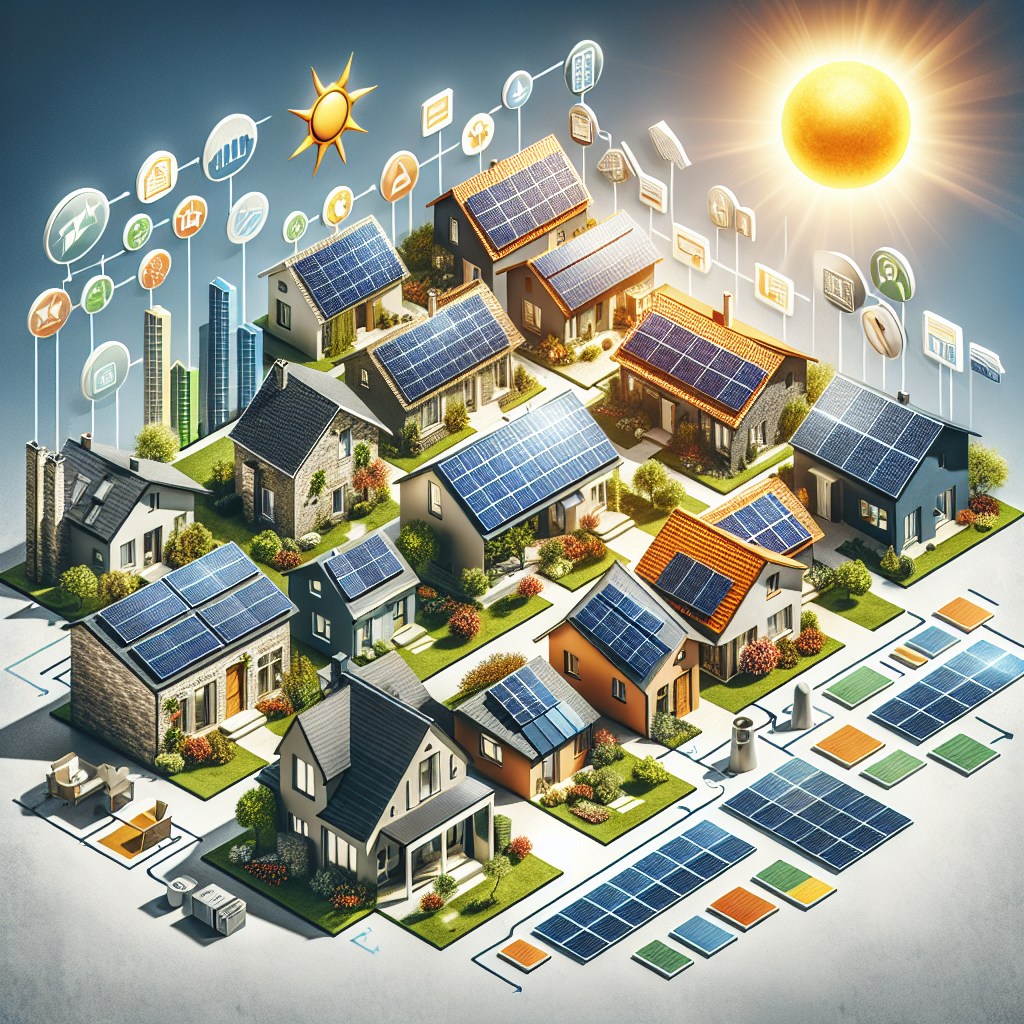As more homeowners turn their gaze toward sustainable energy solutions, solar power has emerged as a top contender. Installing a solar energy system can reduce electricity bills, increase property value, and lower your carbon footprint. However, before making this significant decision, it’s essential to evaluate your home’s unique needs and circumstances. This article will guide you through the crucial aspects to consider as you embark on your solar journey.
Understanding Solar Energy Basics
Before diving into the evaluation, let’s review what solar energy is and how it works. Solar panels convert sunlight into electricity that powers your home. This renewable energy source is not only environmentally friendly but also increasingly affordable, making it an attractive option for many homeowners.
Assessing Your Home’s Energy Usage
Analyze Your Energy Bills
Start by collecting your electricity bills from the past year. This will give you a clear picture of your average monthly energy consumption. Pay attention to seasonal changes, as energy usage typically increases during the summer and winter months due to heating and cooling needs. Understanding your energy patterns allows you to estimate how much solar energy your home would require.
Identify Energy-Hungry Appliances
Next, take stock of your home appliances. Identify which ones consume the most energy—such as refrigerators, air conditioners, and electric heaters. This evaluation can help you prioritize energy efficiency improvements before investing in a solar system. In many cases, reducing overall consumption will allow you to choose a smaller solar setup, saving you money.
Evaluating Your Home’s Solar Potential
Assess Roof Orientation and Angle
A home’s roof plays a pivotal role in its solar potential. South-facing roofs receive the most sunlight throughout the day, while east or west-facing roofs can still yield good results—especially if you’re willing to install a slightly larger system. Additionally, consider the angle of your roof; a steeper pitch often enhances solar absorption.
Analyze Shade and Obstructions
Shade from trees, neighboring buildings, or chimneys can significantly impact the efficiency of your solar panels. Walk around your property during different times of the day to identify potential obstructions. If you notice inadequate sunlight for several hours, it might be wise to consider trimming trees or removing other barriers.
Conduct a Solar Roof Assessment
If possible, invest in a professional solar roof assessment. Experts can provide dynamic simulations that evaluate your roof’s suitability for solar installation. This assessment also includes calculations of solar energy production based on your geographical location, which is invaluable in making informed decisions.
Understanding Financial Incentives
Explore Government and Local Incentives
In various regions, the adoption of solar energy is encouraged through financial incentives. Research federal, state, and local tax credits, rebates, or grants available to lower the upfront costs of installing solar panels. These incentives can considerably enhance the return on investment (ROI) for your solar system.
Analyze Financing Options
When evaluating solar, consider how you plan to finance the installation. Options abound, including outright purchase, solar loans, leases, or power purchase agreements (PPAs). Each has its own set of benefits and drawbacks, so think carefully about which option aligns best with your financial situation and long-term goals.
Choosing the Right Solar System
Evaluate Your Energy Needs
Once you’ve gathered all of your data, determine the size of the solar system needed to meet your energy demands. This usually requires consulting with a solar provider who can help you design a system tailored to your specific requirements.
Select Quality Components
Not all solar panels and inverters are created equal. Investing in high-quality components can improve efficiency and longevity, ultimately delivering better value over time. Look for warranties, certifications, and performance ratings when choosing materials for your solar system.
Finding a Reputable Solar Installer
Research Local Installers
Choosing the right solar installer is crucial. Seek referrals from friends or family, read online reviews, and check credentials. Aim to work with a company that has extensive experience and positive customer feedback.
Ask the Right Questions
Before signing a contract, it’s essential to ask questions. What warranties do they offer? What does the installation process entail? How will they handle maintenance? This dialogue ensures that there are no surprises down the road.
Conclusion: Making Your Solar Decision
The shift to solar energy can seem overwhelming, but breaking it down into manageable steps makes the process attainable. By thoroughly evaluating your home’s energy needs, assessing your solar potential, and exploring financial incentives, you can make an informed decision that benefits both your wallet and the planet. Remember, this transition is more than just installing panels; it’s about embracing a sustainable future that contributes to a cleaner, greener world for generations to come.
Investing in solar energy is not merely a financial decision; it’s a commitment to a sustainable lifestyle. So, take your time, do your research, and watch as your home shines brightly with solar power!


